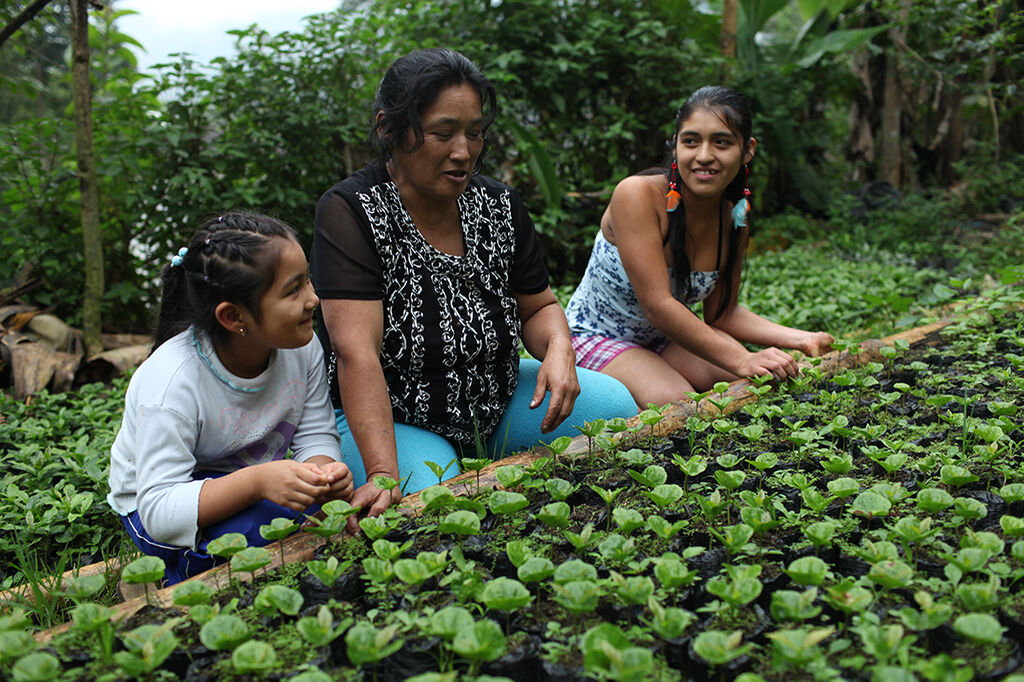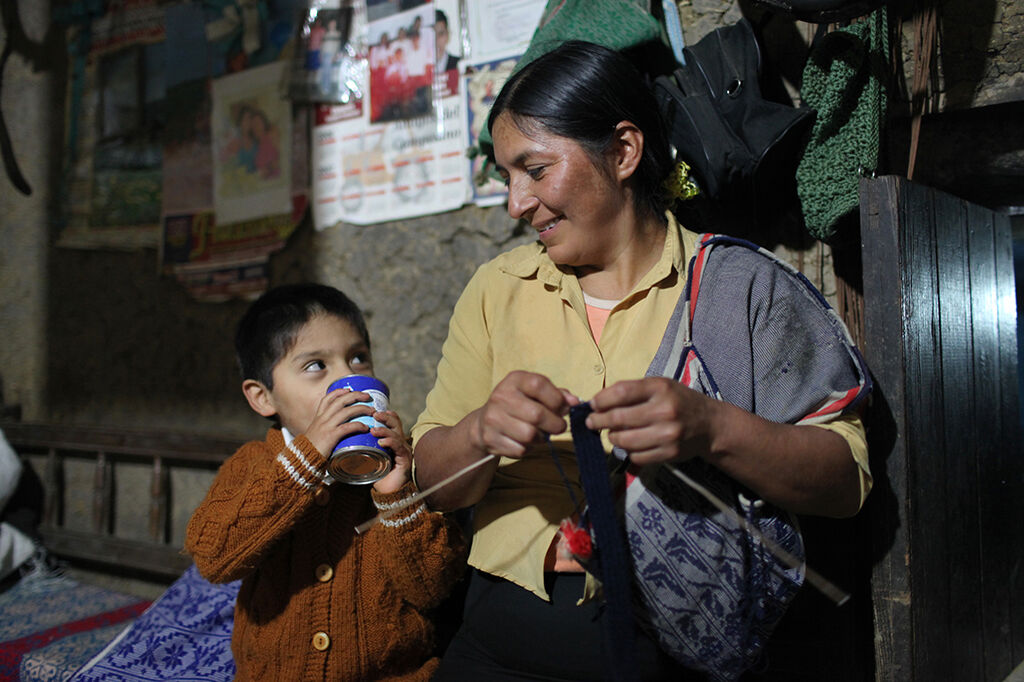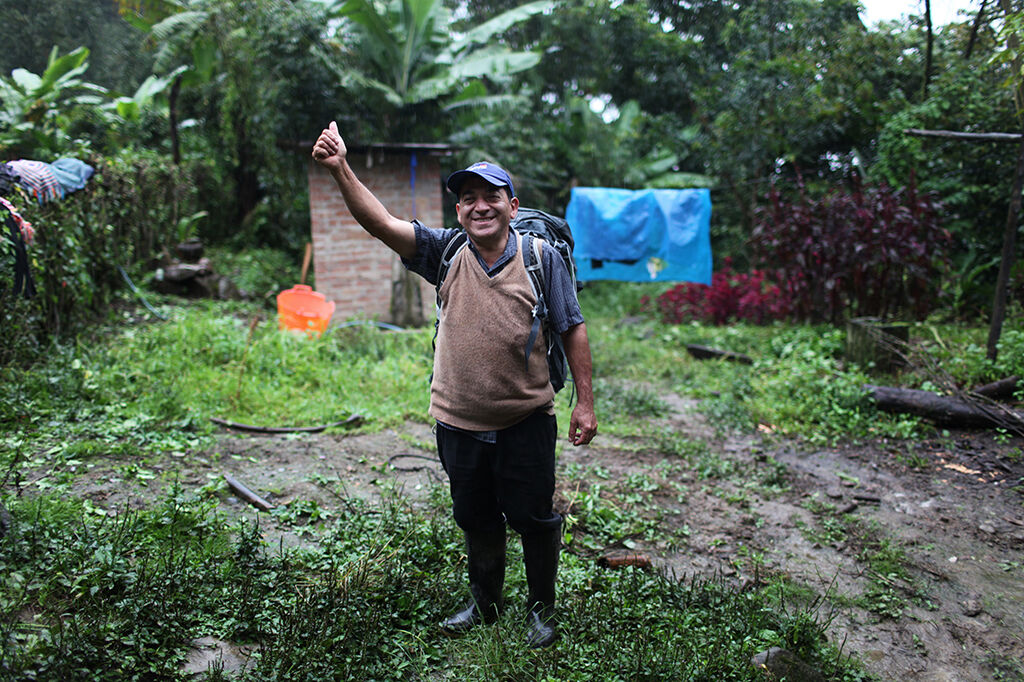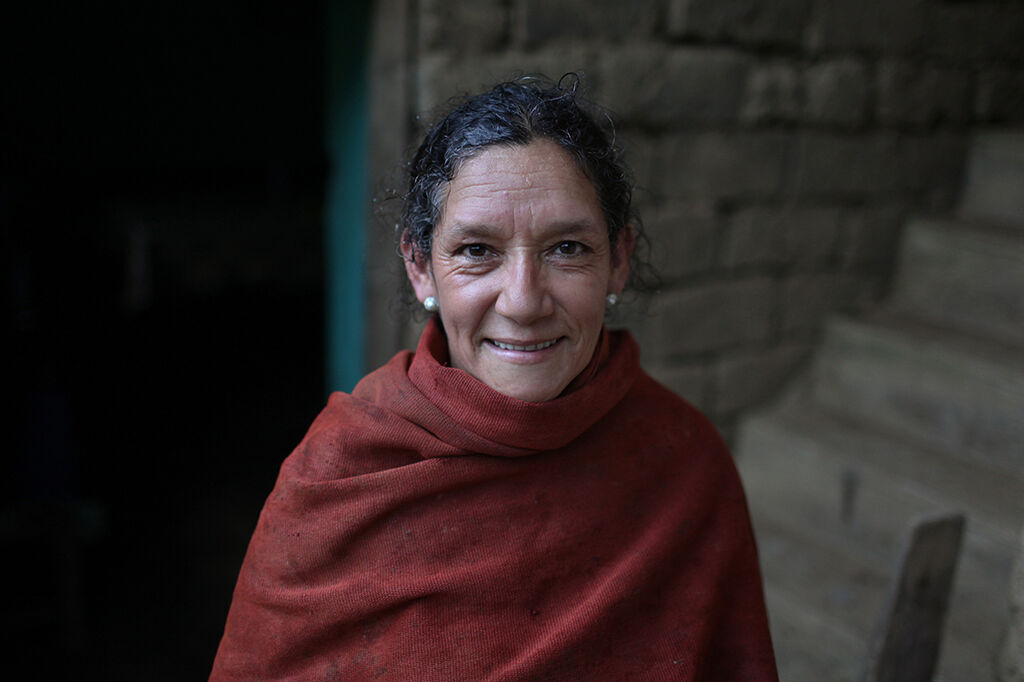International Women’s Day is on March 8, and as we consider what it means to achieve true gender equality, we must also consider the ingrained structural and insidious cultural/societal frameworks that hold women back. There is still a long way to go to achieve total gender equality, but there is also hope to be found in the stories of women who fight daily for it.
Today, I’ll explore several interviews with female coffee workers from Fair Trade Certified™ cooperatives in Latin America about their experiences with machismo and discuss how fair trade helps women rise against some of its harmful effects.
First, I want to acknowledge the complex history of the term machismo. While often used negatively here in the United States, the term can also refer to more “honorable” male traits. Rather than use machismo as a put-down or an example of cultural backwardness, I want to recognize that the term itself has no positive or negative value and rather refers to a large set of cultural norms. Throughout interviews with fair trade women coffee workers, I have found that they used the term machismo to refer to a generalized sexism and misogyny. I will use the term toxic machismo to acknowledge the term’s complexity and possibility for misuse.
In Latin American culture, the toxic machista, or hypermasculine male, demands the respect of his children and his wife. He is physically dominant, he can out-drink and out-brawl his companions, and he is quick to anger. Toxic machismo draws as much on male stereotypes as it does on female: The wife of a machista is expected to be servile and loyal, able to put up with her husband’s outbursts and love him regardless. The stereotype correlates to a real problem in Peru: The country saw almost 150,000 reports of domestic violence in 2016, and of the 121 female homicides reported in 2017, 80 percent of the perpetrators were men who knew their victim. These numbers only reflect a small fraction of actual occurrences of violence, suggests a 2017 survey, which found that fewer than 30 percent of women in Peru reported violence when it occurred in fear of further violence or recrimination.
These effects manifest in the daily lives of women all over the world and frequently come up in conversations with female coffee workers at Fair Trade Certified farms in Peru. Paula Chavez, president of the ASPROAGRO coffee cooperative, says, “Before fair trade, as women, we never participated in a single meeting. Only the men were involved. Women were responsible for looking after the children, and the men did not think very highly of us. There was a bit of machismo. Those who were in charge, who made the decisions, were the men.”

Fair Trade Certified cooperatives must adhere to strict standards requiring proportional gender representation on worker committees so women have an equal voice at every level, creating pathways for women like Paula to overcome gender discrimination.
“Women are now involved in these processes,” she says. “We share the work of taking care of the farm. Girls are being educated. Now, they attend school past secondary school—they have professions.”
In 2015, the United Nations established 17 Sustainable Development Goals (SDGs) which blueprint what needs to be done to achieve a better and more sustainable future for all. Fair Trade USA® contributes to progress toward (among others) SDG 5, regarding eliminating gender inequality, in several key ways: Fair trade standards prohibit discrimination and sexual harassment in the workplace, require workplace trainings on sexual harassment and gender equality on plantations and in factories, and implement grievance mechanisms where workers can report incidents of harassment or discrimination.
On top of that, each cup of fair trade coffee you purchase delivers additional Community Development Funds to cooperatives, which committees will allocate toward projects of their choosing based on voting. Women like Paula put these funds to work in their communities to promote gender equality. Some cooperatives have used Community Development Funds to establish gender equality workshops to educate their members, while others provide low-interest loans to help female entrepreneurs start their own businesses.
Esperanza Dionisia, general manager at PANGOA cooperative in Peru, says, “With fair trade we’ve been able to create a women’s committee that does training and education in self-esteem, preventative health care, as well as raising small animals like chickens and guinea pigs so the women can increase their income when the money from coffee runs out. There’s a lot of machismo in our society. This way the women have their own source of income.”


“Before, the women were quiet and reserved, but now, since Cafe Femenino got going, they have surpassed us men!” says Helbert Valenzuela, president of ASPRO cooperative. “Now they are the important ones!”
Isabel Uriarte, another female fair trade coffee worker in Peru, founded an all-female coffee cooperative called Café Femenino to uplift her fellow women in the coffee industry, and her pioneering work inspires other women to start their own businesses.
“I saw all the benefits my female neighbors were achieving through the Cafe Femenino program and I decided to join,” says Maria Elva Correa Torres. “With the money from the Community Development Fund, I plan to start up a small venture selling groceries at the Sunday market.”
Empowering female workers has a ripple effect, inspiring other women to pursue their dreams and improve their lives. Together, women all over the world prove that it is possible to overcome oppressive cultural norms and thrive.
You can help move this forward by buying Fair Trade Certified coffee, chocolate, produce, apparel, home goods, and more, knowing that your purchase helps empower women all over the world. Check out our Fair Trade shopping guides for ideas about how and where to shop, and join our consumer community to stay engaged and help us continue to reach more women around the world.
